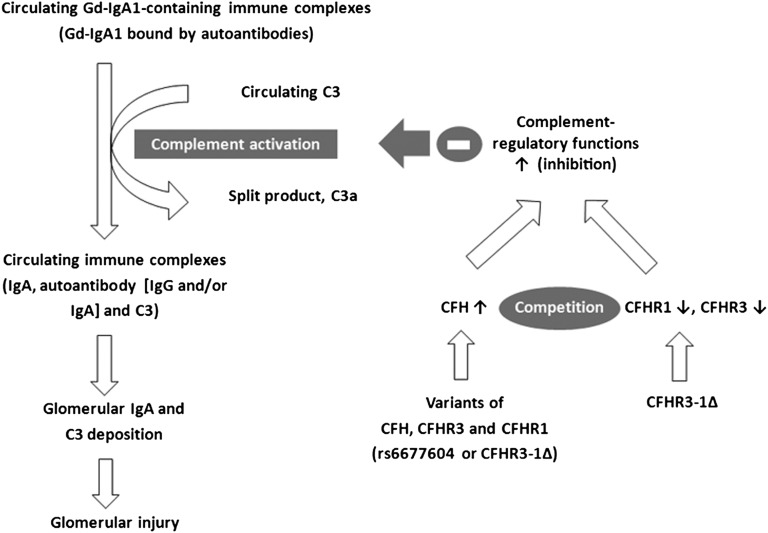Figure 6.
A hypothesis for a potential mechanism by which variants of CFH, CFHR3, and CFHR1 genes affect complement activation in IgAN. Previous studies revealed the pathogenesis of IgAN, in which Gd-IgA1 molecules bound by antiglycan autoantibodies form circulating IgA1-containing immune complexes that ultimately deposit in the glomerular mesangium, inducing glomerular injury.45 Meanwhile, complement C3 was observed in both circulating and deposited immune complexes.46 In this study, we found that variants in CFH, CFHR3, and CFHR1 (rs6677604-A allele or CFHR3–1Δ) were associated with higher CFH levels. Because genetic deletion of CFHR3 and CFHR1 was reported to lead to absence of these proteins10 and because CFHR1 was a competitive antagonist of CFH to modulate complement activation,33 higher CFH levels together with the absence of antagonist (CFHR1 protein) resulted in the robust complement inhibition represented by higher circulating C3 and lower C3a. Furthermore, the associations between mesangial C3 deposition and circulating CFH levels as well as genetic variants suggested that variants in CFH, CFHR3, and CFHR1 influenced the formation and deposition of pathogenic immune complexes in IgAN.

